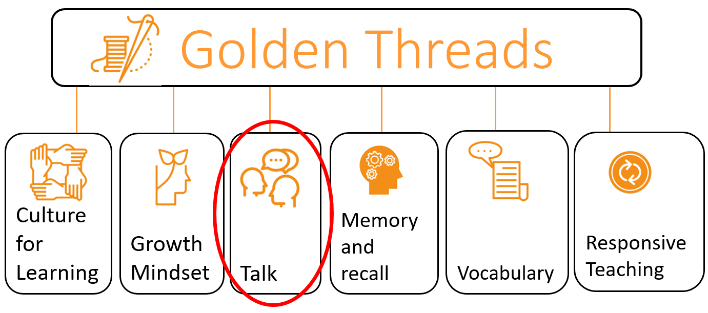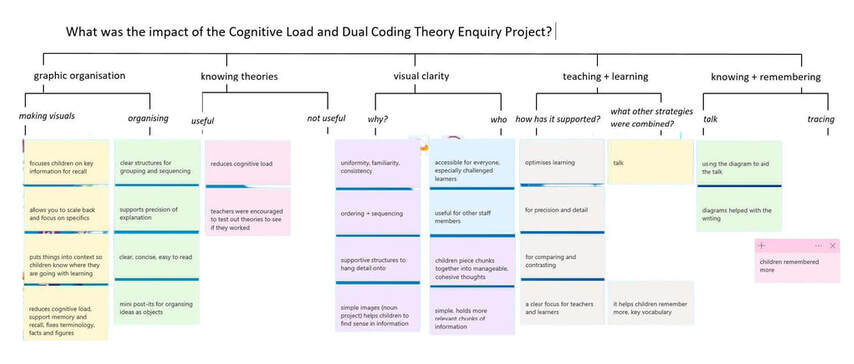Research and development within school
Educational Expertise
At Blue Gate Fields Junior School our pupils benefit from wide ranging educational expertise:
- Three former Advanced Skills Teachers
- Nrich trained teachers
- CLPE: All teachers, (including some HLTA’s, excluding NQTs) Centre for Literacy in Primary Education trained
- teachers, who train other teachers, at borough level in literacy, numeracy, teaching and learning and SEND
- CAME: Cognitive Acceleration in Maths Education trained teachers
- MaST: A Mathematics Specialist Teacher Progamme trained teacher
- NPQH ( National Professional Qualification in Headship) qualified Head teacher
- NPQSL (National Professional Qualification in Senior Leadership) qualified senior leaders
- SENCO qualified SEND Lead and teacher
- sports coaching qualified Teaching Assistant
- RCA (Royal Collage of Art) lecturer to teach Design and Technology.
TALK – an educational goal in its own right
The project, which has development scope for all teaching staff, is designed to scale up existing understanding of talk, and to further develop high-quality, evaluated practice. Teachers, and teaching assistants will be given supported opportunities to understand, and explore through rewarding professional dialogue, creative practice and reading.
We will build a deeper, shared understanding of a repertoire of skills and behaviours that teachers can choose to use to teach and model talk; the different types of talk we want to cultivate for different purposes and a fuller confidence that talk is an educational goal in its own right. Development will be focussed on identifying and removing barriers to learning.

Talk is one of the Golden Threads which runs throughout the teaching and learning in our school. We value these teaching and learning principles, as they are the key principles that best meet the needs of our specific learners, who disadvantaged or not, face a combination of linguistic, social or economic barriers to learning.
At Blue Gate Fields Junior School, talk is taught explicitly. We believe that, “talk is the sea upon which all else floats” (James Britton 1970) and Professor Frank Hardman reinforces this when he states that “[Talk is] the most powerful tool of communication in the classroom and it’s fundamentally central to the acts of teaching and learning.” We believe that if a pupil can articulate thinking verbally, then they will be able to expand and develop learning. We know that knowledge is constructed and developed through social interaction, and that spoken language helps us to construct meaning of the world around us, and of abstract ideas and concepts.
Furthermore, we want classroom talk to be preparation for the social, educational and employment settings they may encounter in the future, and is one of the key strategies we use to develop pupils’ critical thinking and reasoning skills. We are teaching children to express themselves, build self-esteem and confidence; we want them to work collaboratively, to be able to communicate with their peers efficiently and to become active citizens with excellent oral communication skills.
Within a school culture for learning that promotes high levels of trust between teacher and pupil, we want children to be confident that they are heard and listened to; that talk is another aspect of their learning where struggle, setback and failure are part of that learning which can be ‘tricky’ to grapple with.
Cognitive Load Theory and Dual Coding
The project, which was undertaken by all teaching staff, was designed to scale up existing staff understanding and to further develop high-quality, evaluated practice. Teachers, and teaching HLTAs, were given supported opportunities to understand, experiment with and explore underpinning rationales through reading, professionally rewarding dialogue and creative classroom practice.
Through the project, we built a shared understanding and model of pedagogy. Development was focused on identifying and removing barriers to learning. The project is to be further developed through a focus on using dual coding and graphic organisation to support retrieval of knowledge – children knowing more, and remembering more.

Memory and Recall – how do we share our understanding with pupils?
We want our pupils to have the language to articulate how they hold on to their learning and are able to make links between and across topics and subjects.
Through a series of lessons to introduce and explain to pupils how memory and cognitive load impacts upon their learning, pupils will be taught strategies for memory and recall.
This project uses the knowledge and understanding of a staff member’s degree qualification and strategies from memory and recall inset. It will make links to Growth Mindset strategies and how we teach pupils about the learning process. It will utilise strategies for talk to support pupils to have the language and sentence structures to talk about their understanding of the role of memory in their learning. Research will explore their understanding of the strategies we use (learning journeys, spiral planning, learning intentions, practice and making memory links) and how they use them to support their learning.
Research will be carried out through:
- Trial lessons and strategies
- Support for key drivers of initiative to trial lessons and strategies
- Staff inset with the support of Hanna Filfilan (Teaching and Learning Lead)
